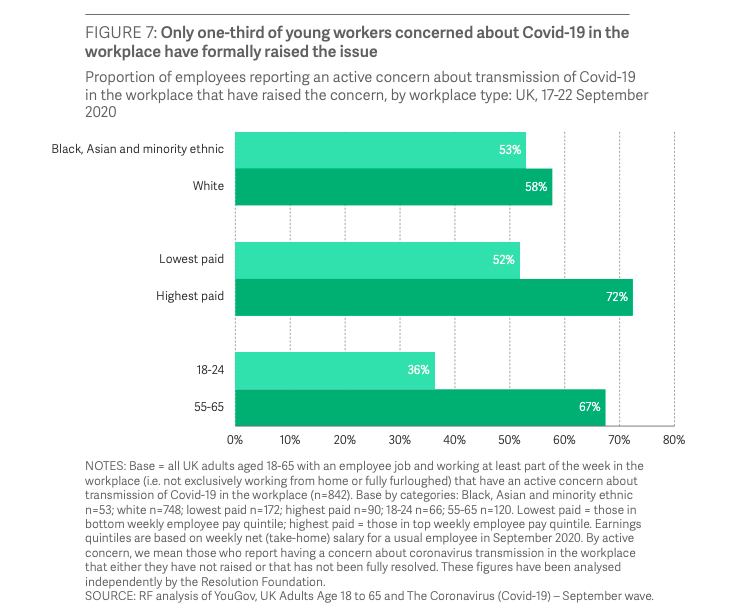More than a third of workers are concerned about catching COVID-19 on the job

More than a third of employees who had returned to their workplaces back in September had active concerns about COVID-19 transmission on the job.
This is despite the best efforts of employers to make workplaces “COVID-secure,” according to a new report by the Resolution Foundation.
Low-paid workers are less likely than high-paid workers to raise concerns with their employer, or to see their concerns resolved when they do so.
The survey of 6,000-plus UK working-age adults, taken in September this year, found almost half of all workers (47%) do not know who to approach externally in the event they raised a health and safety concern with management but it was not resolved.
On top of this, the research found the Health and Safety Executive (HSE) was slow-off-the-mark to send inspectors out to workplaces to ensure they were safe at the start of the pandemic, though activities have now been ramped up.
READ MORE: Can an employee's actions on Zoom get them fired?
Significant budget cuts over the last decade clearly constrain the number of investigations both the HSE and local authorities can conduct.
According to the Resolution Foundation, while the HSE draws on many sources of intelligence to identify where non-compliance is most likely to be found, little credence is given to the (unorganised) employee voice.
In addition, the health and safety system has been reluctant to use its strongest enforcement tools to tackle poor practice during the pandemic, in part because COVID-19 has been deemed a “significant” but not a “serious” risk in the workplace.

The research also found that younger workers were less likely to speak up if they felt unsafe. Just over a third (36%) of people aged 18-24 said they spoke up, while 67% of 55-65 year olds raised an active concern about safety.
The Resolution Foundation said there could be a few reasons for this disparity.
READ MORE: UK hiring 'picks up' but remains below pre-coronavirus levels
The report said: “On one hand it is plausible that younger workers are less worried on a personal level. On the other hand, there may be less individualistic explanations for younger people’s lack of complaint.”
Young people are at the “sharp end” of the current economic crisis and are over-represented in sectors hardest hit by the pandemic such as hospitality and retail. They are also more vulnerable to redundancy given naturally short job tenures.
Watch: Why are job losses rising despite the economy reopening?

 Yahoo Finance
Yahoo Finance 